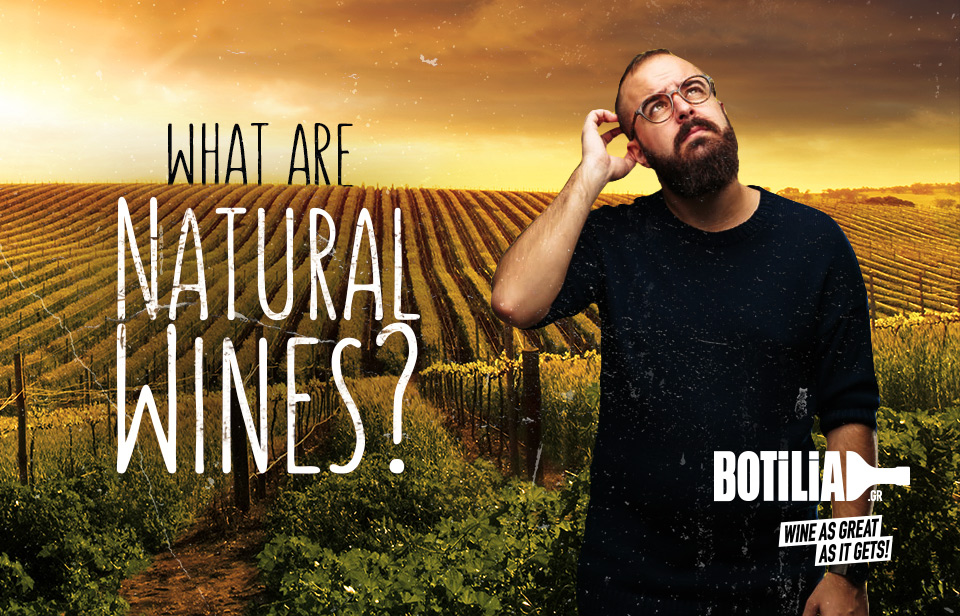WHAT ARE NATURAL WINES?

There is no way you have not heard of natural wine, as in recent years it is a very hot topic that has gone out of the realm of sommeliers and wine bars. Natural wines are now everywhere and everyone wants to try them. In fact, natural wines have managed to create a fanatical audience and are a big trend especially at younger ages. Returning to the roots, respect for the environment and the need to return to ecology are some of the reasons that natural wines are such a success. But really, what are natural wines?
The term and what it may include is something very complicated and without clear boundaries, to be honest. In simple terms, natural wines are wines that have minimum intervention. And one would wonder, what exactly does that mean?
First, grapes are grown organically or biodynamically or with the philosophy of permaculture. The rationale behind this is that they try not to disturb the balance of the vine with respect to its environment but also to reduce as much as possible their effects on it.
Second, the wine is fermented with its own, indigenous yeasts and not commercial ones. This can be both good and bad. It may, for example, give the wine a unique character and underline the terroir and the typical character of the variety. On the other hand, there is always a risk that the fermentation will not be completed or that unwanted by-products will be created.
Third, additives and corrective substances are not permitted. By this I mean that tartrates cannot be used, for example, to correct acidity, nor clarifying agents.
Fourth, heavy intervention processes such as filtering are prohibited. In some cases, only coarse filtering, that retains only large particles, is permitted.
Finally, the use of sulfites is very limited or zero. Since we are talking about a somewhat abstract term that is used by many as a marketing tool, several organizations have been trying to set specific terms and conditions to certify a wine as "natural", thus protecting the hard work of naturalistas. Each of them may have slightly different standards. Sulphites are something that vary from organism to organism. The French S.A.I.N.S., for example, is the strictest of all, as it doesn’t allow any sulphites at all but accepts coarse filtering. For AVN, total sulphite levels are set at 30 mg / l for red and sparkling, while for white it is 40 mg / l. For the Italian VinNatur, 50 mg / l is the accepted total level of sulphites.
And here comes the question: if these are natural wines, what are the rest? Unnatural? As Konstantinos Lazarakis MW put it in his article very wisely:
“If you enjoyed a natural wine that had more than 9% alcohol (and acidity that didn't send you straight to botox), then we have a surprise. This wine was not natural at all. "
Oh yes, the truth is that if want to call a wine natural we have to let the vine do its own, not pruning, not fertilizing, nothing at all. Let it create the shape it wants (not guyot or cordons) and grow as many bunches of grapes as it can. At some point we will take its grapes and let them do as they wish, meaning ferment without commercial yeasts, without applying any pressing, without tartrates. What comes out, yes, it will be a natural wine but it will be undrinkable. So, the term natural wine is rather an attempt to separate wines from conventional wine-making from those of mild (natural) wine-making.
Observing trends around the world, I believe that natural wines will continue to concern us for a long time to come. This might be pleasant for some but unpleasant for others because in the end of the day they are all wines and wine is always a matter of taste and mood (natural or conventional).
Eva Markaki
Wine Geek


